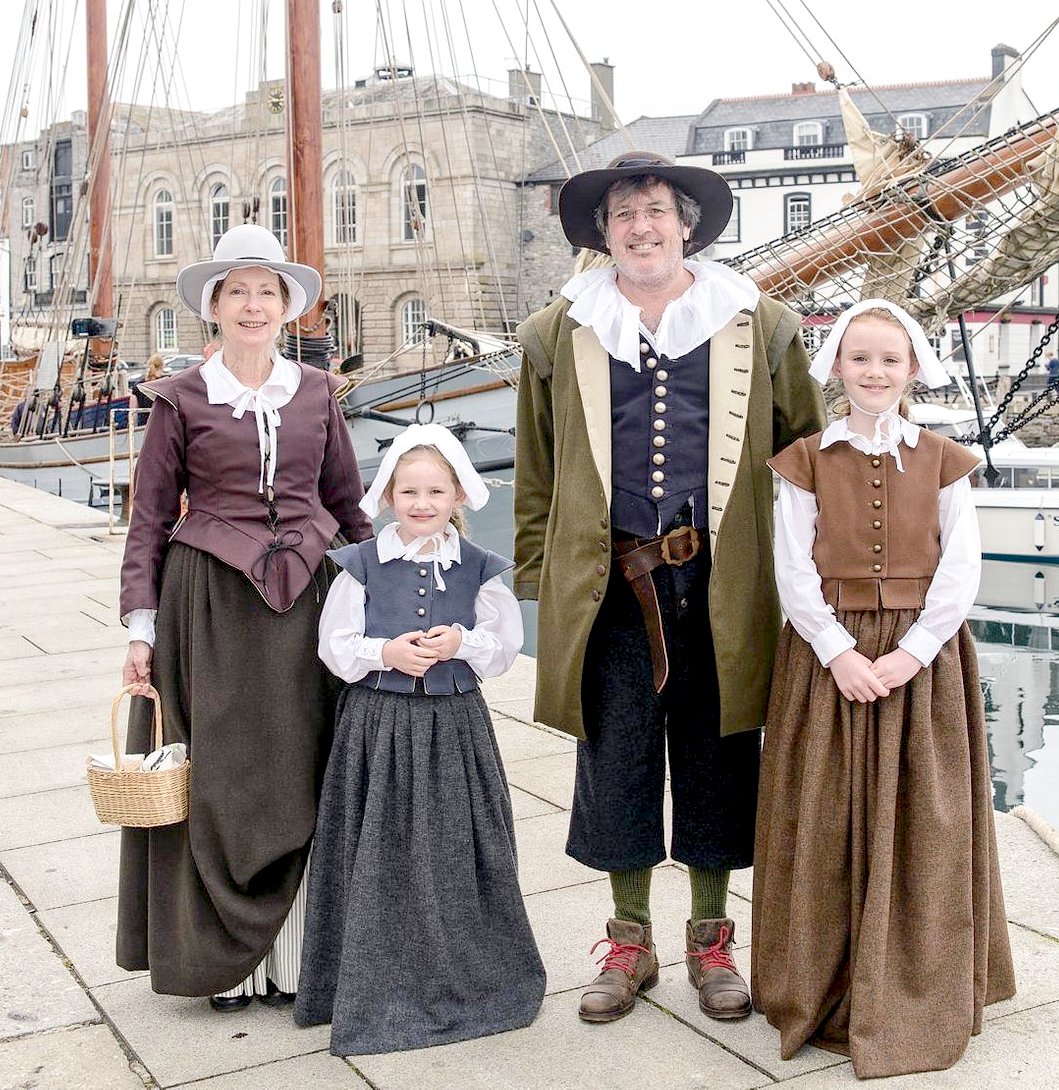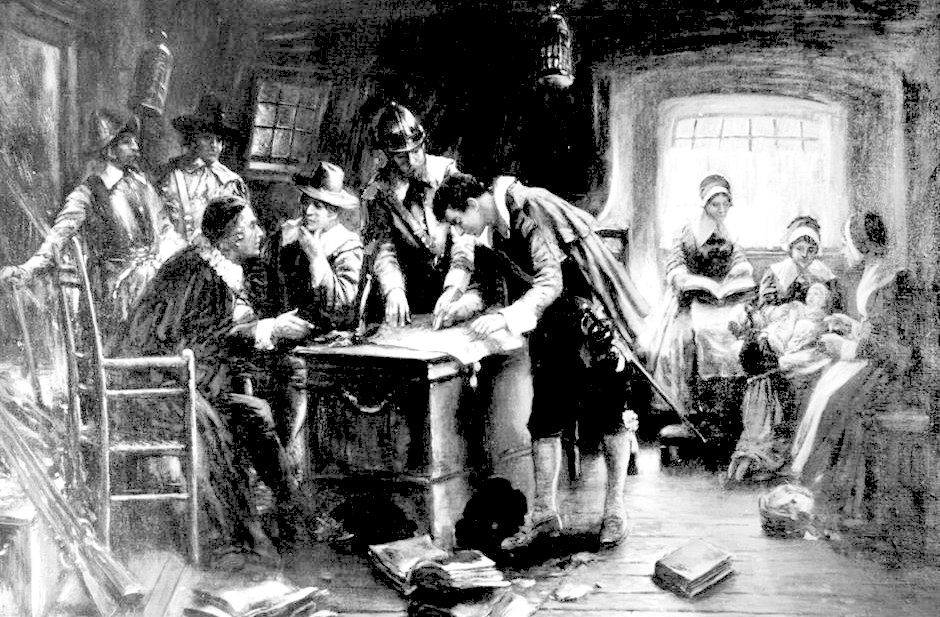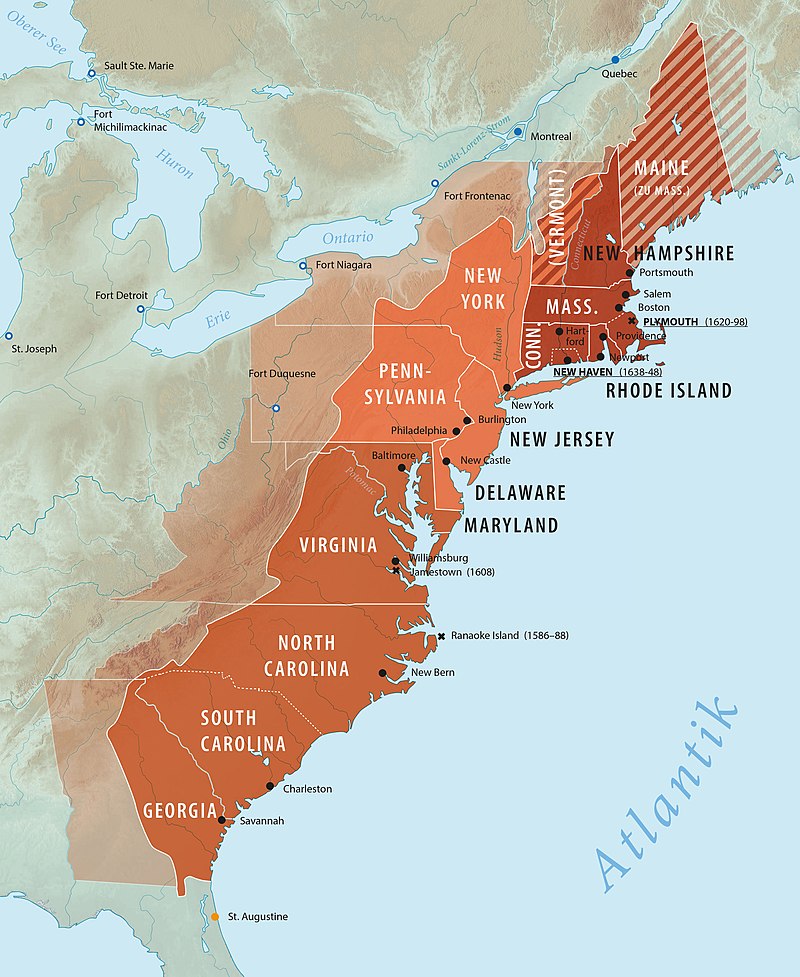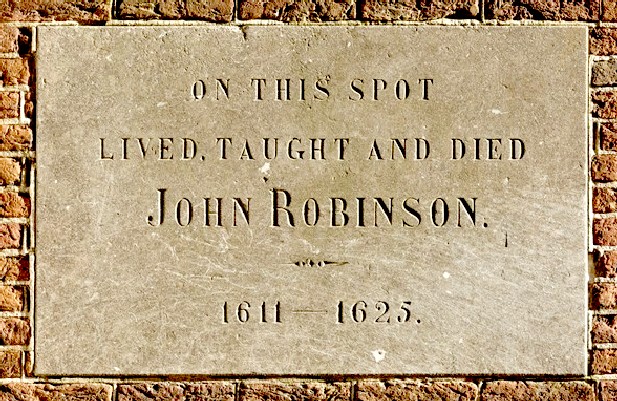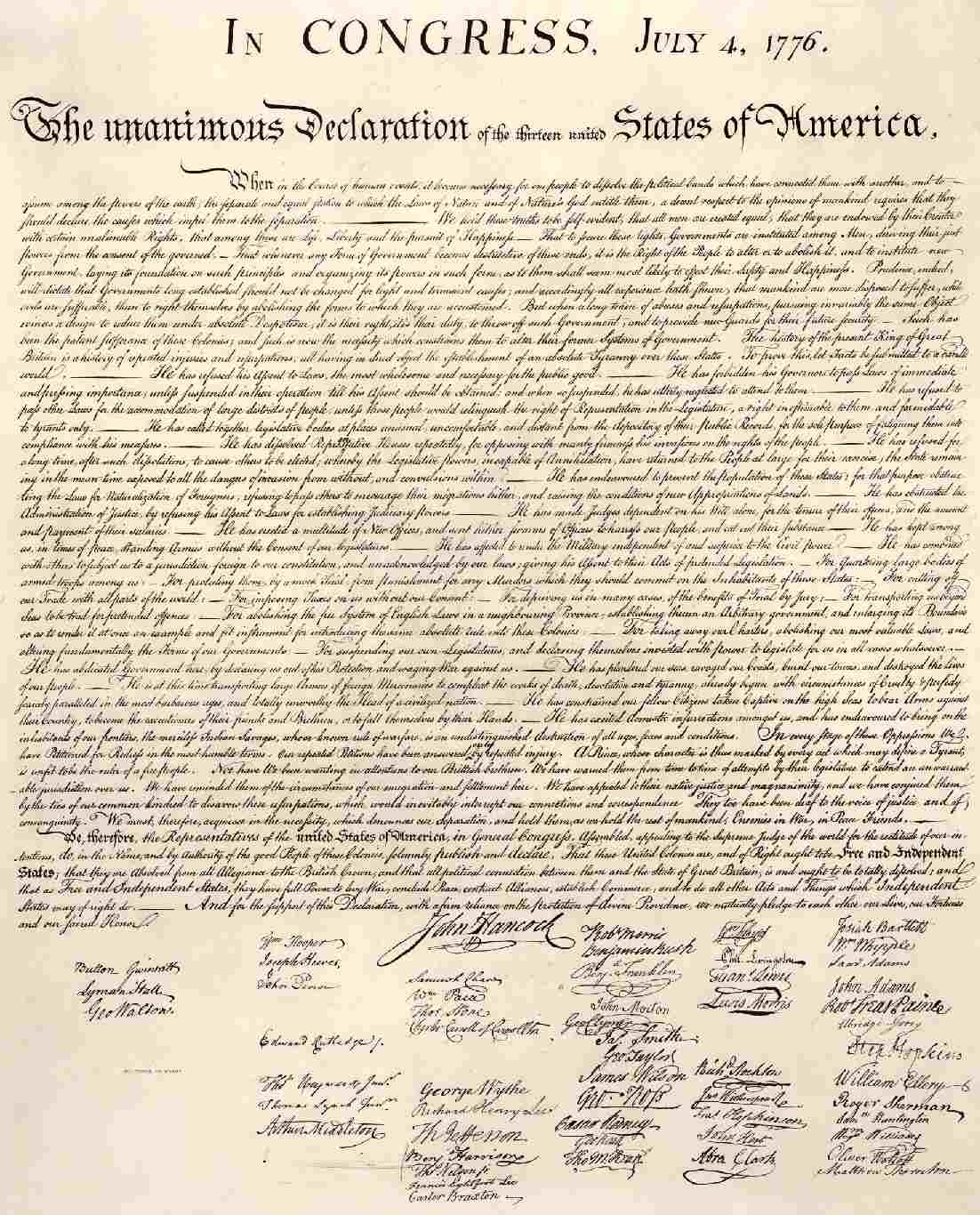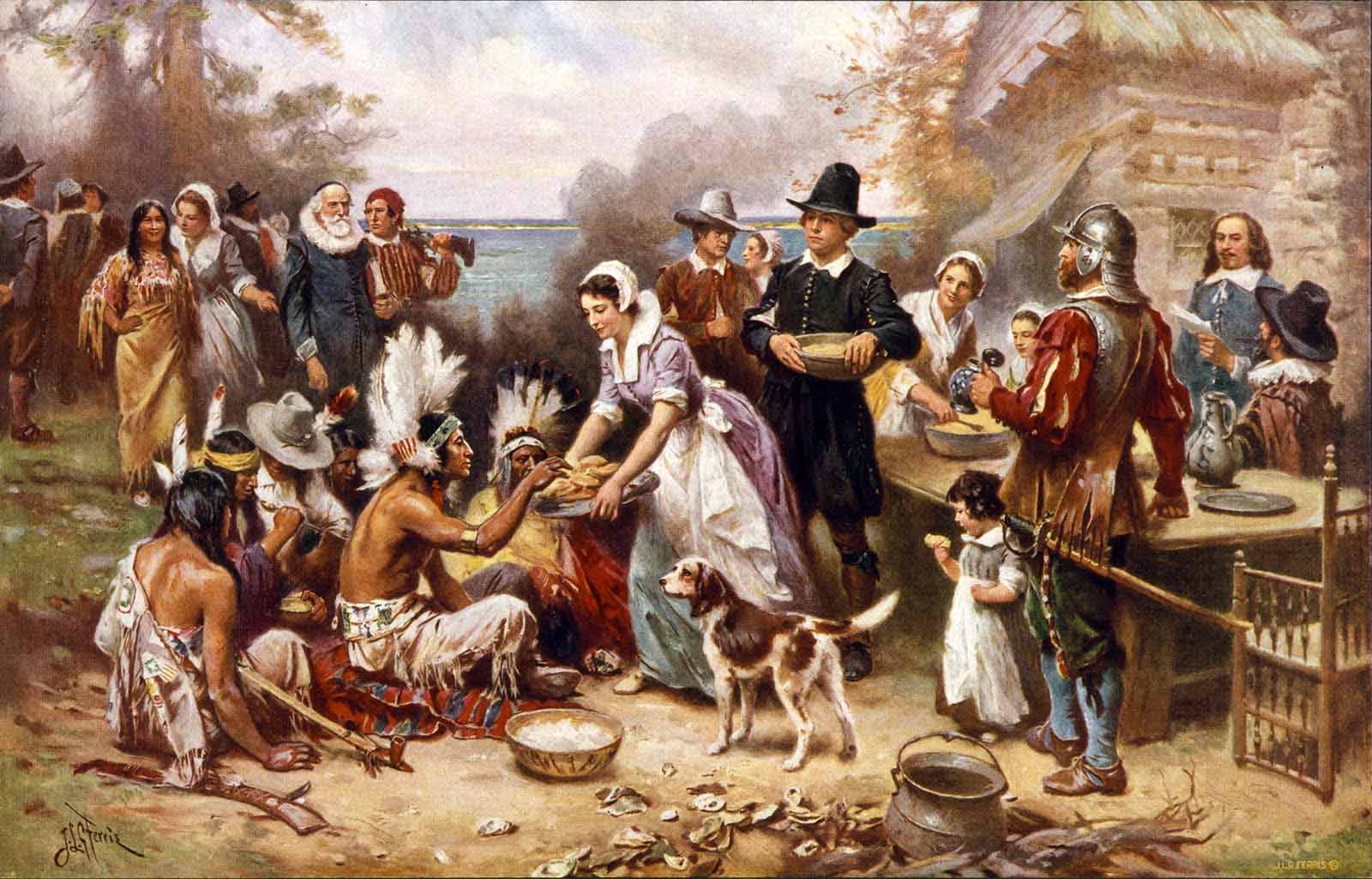|
COLONIZING AMERICA
Please use our A-Z INDEX to navigate this site or return HOME
|
|
Persecuted
for their beliefs, the religious non-conformists fled to the
Netherlands, then back to Plymouth for an exodus to America. It must
have been exciting times, fraught with the fear of the unknown. One
important legacy of The Mayflower is its role in pioneering democracy.
But, life was hard in their new land. The winter was severe and many of the passengers remained aboard the Mayfower. The ship became a sanctuary for the sick and those who were dying, many of them died of a combination of contagious diseases. By the end of the first winter, less than half of the crew and passengers were alive.
The actions of King Henry VIII may be said to have been a major contributory factor in the Founding Father's eventually taking to the high seas in the Mayflower, despite the two events being seemingly un-connected. Intolerance on the part of the British monarch would lead to a pilgrimage that planted a political seed, that would eventually germinate into the War of Independence, so severing ties with England's colonial rule. But first, England would attempt to colonize the America's bent on exploiting mineral and plantation wealth, ignoring that those poor colonists in Massachusetts were actually the non-conformists the Crown had persecuted so much that they fled to save their heads. 'Henry the Butcher,' being famous for head lopping to quash political rebellion. Then, heavy taxations would cause unrest and ultimately violent severance, with the British again footing heft costs, that they would then need to exploit other countries to settle.
In England, there is no written constitution, they have an honours system where the Head of State (HOS) rewards services to the Crown with titles. Many judges receive such rewards in return for helping the HOS keep control of the electorate, quashing dissent in a variety of ways (civil actions, rather than executions), including planning enforcement, false imprisonment, bankruptcy petitions. The Pilgrims would have none of that. The first thing 41 of the crew did was to draft up and sign a Compact, amounting to a Written Constitution. They did not want any repeat of a unfair system like that in the Britain they had just escaped from, where control of the masses is via secret meetings, by secretive bodies, with what is in reality, a dictator in all but name, holding the reins. If there were ever a computer with such control, it would be called SkyNet.
THE PILGRIMS AS COLONISTS
Between the late 1610s and the American Revolution, the British shipped an estimated 50,000 to 120,000 convicts to their American
colonies.
Australia is famous for such use of criminals to found that giant
colony.
THIRTEEN COLONIES - After several abortive attempts to found workable colonies, eventually a formula that enabled colonists to flourish in America saw a massive expansion of across the country. Much of this must be attributed to the generous sharing of farming and fishing know how from the native Americans.
All wealth ultimately rests on food production. Food feeds thinking humans that generate ideas and technology. Food can be produced and sold as cash crops. This includes farming and fishing, where fish and livestock are also excellent money earners. Our problem at today is that we have reached a tipping point, where our need for feed, exceeds the seeds of yesteryear. We are now generating deserts and sterilizing the oceans with plastic and acid, at a progressive rate - such that the planet can no longer support population growth. We would need another planet to keep going as we are, and replacements are in short supply. But if we did find one within striking distance, we could build a space Mayflower.
All
in all, 13 American colonies were founded and flourishing as British
subjects, believing that the unwritten British constitution
(still is unwritten today) protected their rights and that the governmental system, with the
House of
Commons, the House of Lords, and the monarch sharing power found an ideal balance among democracy, oligarchy, and tyranny. However, the British were saddled with huge debts following the French and Indian War. As much of the British debt had been generated by the defense of the colonies, British leaders felt that the colonies should contribute more funds, and they began imposing taxes such as the Sugar Act of 1764. Increased British control of the Thirteen Colonies upset the colonists and upended the notion many colonists held: that they were equal partners in the British Empire.
Today, the remnants of the British Empire is the Commonwealth,
where Queen
Elizabeth II is still regarded as the Head of State.
The descent into armed conflict between patriot (anti-British) and loyalist (pro-British) sympathisers was gradual. Events like the Boston 'Massacre' of 1770, when
British troops fired on a mob that had attacked a British sentry outside Boston's State House, and the Boston 'tea-party' of 1773, when British-taxed tea was thrown into the harbour, marked the downward steps.
Sam Adams and Paul Revere envisaged a break with Britain when many of their countrymen still hoped that it might be avoided.
THE BOAT THAT GAVE HOPE FOR A NEW LIFE
On 16 September 1620, the Mayflower set sail with approximately 30 crew and 102 passengers on board. Almost half of them were Separatists, or “Saints”. They had chosen this name to emphasize the fact that they were part of a specific group with particular views. All others were referred to as “Strangers”, as this is how the Saints regarded anyone who was not part of their group, and did not understand their faith. The 'Strangers' were a group of skilled workers who were sent along by the investors to help build the colony.
The original wooden 30-meter Mayflower took 66 days to carry the Pilgrims, Founding Fathers from the U.K. to what is now the U.S.
More than 30 million people can trace their ancestry to the Mayflower. They include celebrities and US presidents.
LINKS, CONTACTS & REFERENCE
https://history.howstuffworks.com/historical-figures/10-henry-viii-executions.htm
|
|
|
Please use our A-Z INDEX to navigate this site
This website is Copyright © 2022 Jameson Hunter Ltd
|
